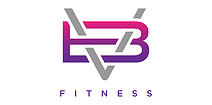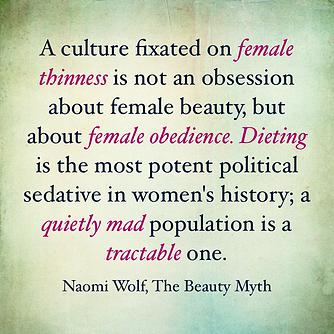“You don’t look like you’ve had a baby!”
It’s a ubiquitous comment, meant in kindness to reassure a new mum she looks great. There’s no malice there, and I’ve said it myself in the past.
It begs the question though: what does someone who’s had a baby look like exactly? This is meant as a compliment, but it acheives this with the implication that looking like you HAVE had a baby is a negative thing.
What’s so bad about looking like you’ve created life? I suppose ‘you don’t look like you’ve had a baby’ could be referring to looking radient despite sleep deprivation. It could be a lack of stretch marks (although again, what’s wrong with stretch marks?). But I think we all know it’s really about size: well done, you’re small again.
Telling someone they’re small is still a compliment, and I’m not sure how I feel about this. Naomi Wolf’s words spring to mind for a start:
“You don’t look like you’ve had a baby!”
Something else about this comment nags at me though- it only works as a compliment if you’re comparing yourself to other women. Which we do. We’re in this monster of a competition that none of us signed up for, one that reaches its tendrils into every aspect of our lives.
Women and girls are often made out to be bitchy, as if it’s just one of our characteristics, but this isn’t inherent to our nature; society continually pits us against one another, from using each other’s insecurities to feel better about ourselves, to failing to give each other the support we deserve in the workplace, having been led to believe there’s not enough space at the top for us all.
“You don’t look like you’ve had a baby!”
Thing is, and what I didn’t expect, isn’t how having children affected how I look. It’s how it has affected how I feel.
I feel stronger, more confident. I feel more concerned with how my body feels than how it looks. I feel more concerned with the person than the vessel. We’ve gone through labour, known love like never before, sleepless nights and exhausted days, and still found the energy and patience to answer the endless questions about who is stronger, Hulk or a T-Rex?” (Well, most of the time anyway. And it’s definitely Hulk).
Recently this amazing post on Facebook came up on my newsfeed.
“No one is comfortable in their own skin 100% of the time. Constantly labelling people and piling expectations associated with these labels on them is harmful to everyone…including those doing the labelling.
What we should be worrying about is if people are ok, not what they look like.”
And she’s right. There’s nothing wrong with complimenting a mum (or anyone) and making them feel good, but I’d like to do it without pushing a standard of what society considers ‘good’ on them. Without making it sound like showing signs of being a mother is a bad thing, and without reinforcing the idea that how we look is what’s important when you’ve just given birth. Without putting smallness before health.
From an early age this focus on appearance is ingrained into us, and then we unconciously perpetuate the problem. We’re so used to our bodies being subjected to an ongoing stream of public scrutiny and commentary, from how we look to how we use them (think breastfeeding in public), that it barely even registers anymore.
What if we stop focusing on how we look and start focusing on how we feel? We are not our bellies (or any other body part), and whilst I know to many of us it really does matter what we look like after childbirth, do we want our children thinking women should to look a certain way (usually for the male gaze), regardless of whether it’s healthy?
Remember that what matters, what people see when you walk in to the room, is not a woman whom they love because she looks like she hasn’t had a baby, or whom they judge because she does, but a wonderful person whose smile lights up the room, or whose laugh is infectious, or whose shoulder is always there to lean on, or whatever amazing qualities make you, you.
Imagine a society that focused on what women’s bodies are capable of, rather than what part needs ‘fixing’, or what we could achieve if we got our brains focused on other things, and our confidence up as a result. I know it seems a small thing, but perhaps thinking about how our daily dialogue influences this is a good place to start. First and foremost asking how someone feels, and really listening to the answer.


